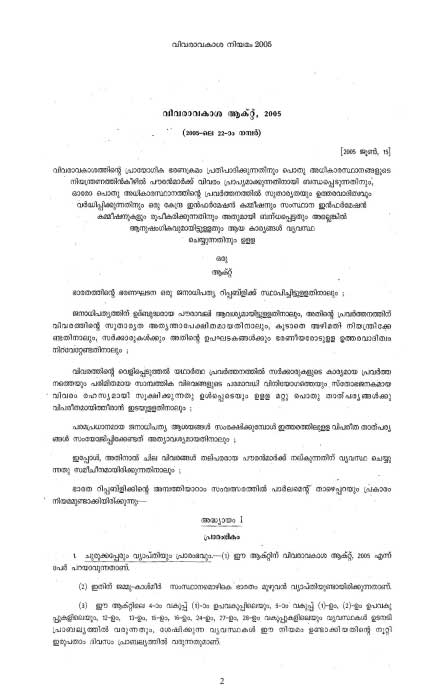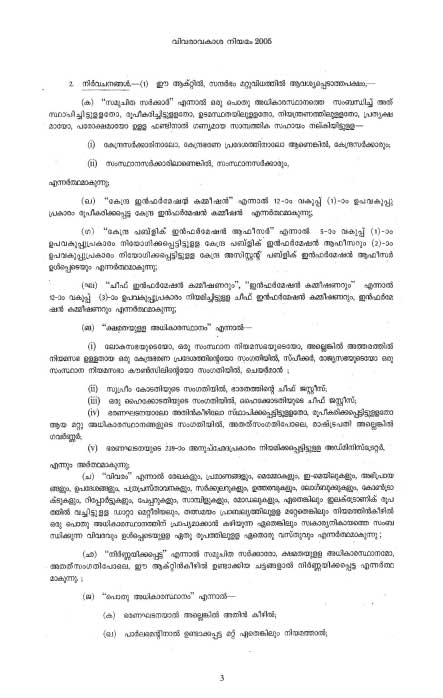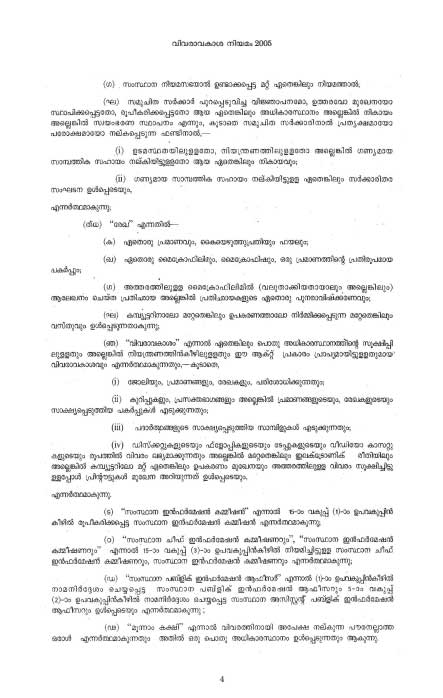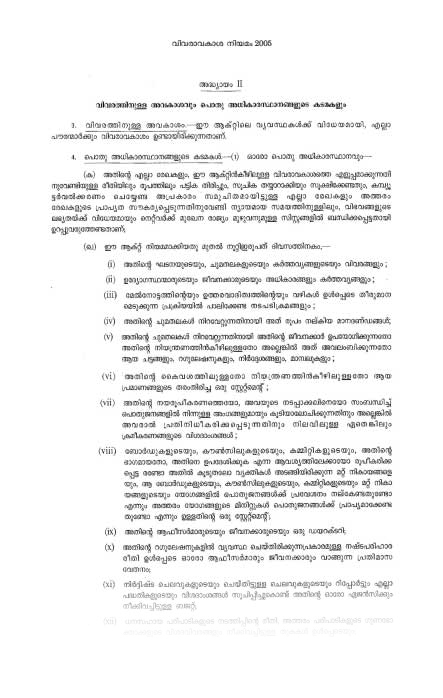Description
Vivaravakasa Niyamam [RTI Act in Malayalam]
വിവരാവകാശ നിയമം – Right to Information Act of 2005
As of the last update in September 2021, India has an “Right to Information Act” (RTI Act) that came into effect on October 12, 2005. The RTI Act is a crucial piece of legislation that empowers citizens of India to access government information, ensuring transparency and accountability in the functioning of public authorities.
Brief Description of the Right to Information Act (RTI Act):
The RTI Act provides citizens with the right to request and obtain information from public authorities, both at the central and state government levels. It covers all government bodies, institutions, and organizations that receive government funding, as well as any non-governmental organizations substantially financed by the government.
Key Features of the RTI Act:
- Application Process: Any Indian citizen can file a written request (application) to the designated Public Information Officer (PIO) seeking information on any matter of public interest. The application must be submitted in a prescribed format along with a nominal application fee.
- Timeframe: The PIO is required to respond to the application within 30 days, and in certain cases, an additional 30 days may be allowed if the information sought requires extensive research or third-party consultation.
- Exceptions: The RTI Act does have some exemptions, such as national security, personal privacy, trade secrets, and information that could harm the strategic interests of the country.
- Appeals Mechanism: If the PIO denies the requested information or fails to respond within the stipulated time, the applicant can file an appeal with a higher authority called the “First Appellate Authority” (FAA). If the appeal is rejected or no action is taken, further appeals can be made to the Information Commission at the state or central level.
Long-Term Significance:
The Right to Information Act has several long-term significance for Indian society and governance:
- Enhanced Transparency: The RTI Act fosters transparency in government functioning by allowing citizens to access information about public policies, decisions, and actions. This, in turn, helps to reduce corruption and hold public authorities accountable for their actions.
- Empowerment of Citizens: The Act empowers citizens with the right to participate in the decision-making process and voice their concerns about government policies and activities. It strengthens the democratic fabric of the country.
- Deterrent to Corruption: With the threat of public scrutiny, public officials are discouraged from engaging in corrupt practices or misusing their power, as they are aware that their actions can be questioned and exposed through RTI applications.
- Social Justice and Equity: The RTI Act can help marginalized and disadvantaged communities to access information about government schemes, funds, and welfare programs. It enables them to ensure that they receive the benefits they are entitled to, reducing the scope for discrimination and neglect.
- Promoting Good Governance: By encouraging openness and accountability, the RTI Act contributes to the promotion of good governance practices, making the government more responsive and efficient.
In conclusion, the Right to Information Act of India is a vital tool for promoting transparency, empowering citizens, and ensuring accountability in the country’s governance. Its long-term significance lies in its potential to foster a more open, participatory, and responsible government, which can lead to positive changes in society, the economy, and overall development.










Reviews
There are no reviews yet.